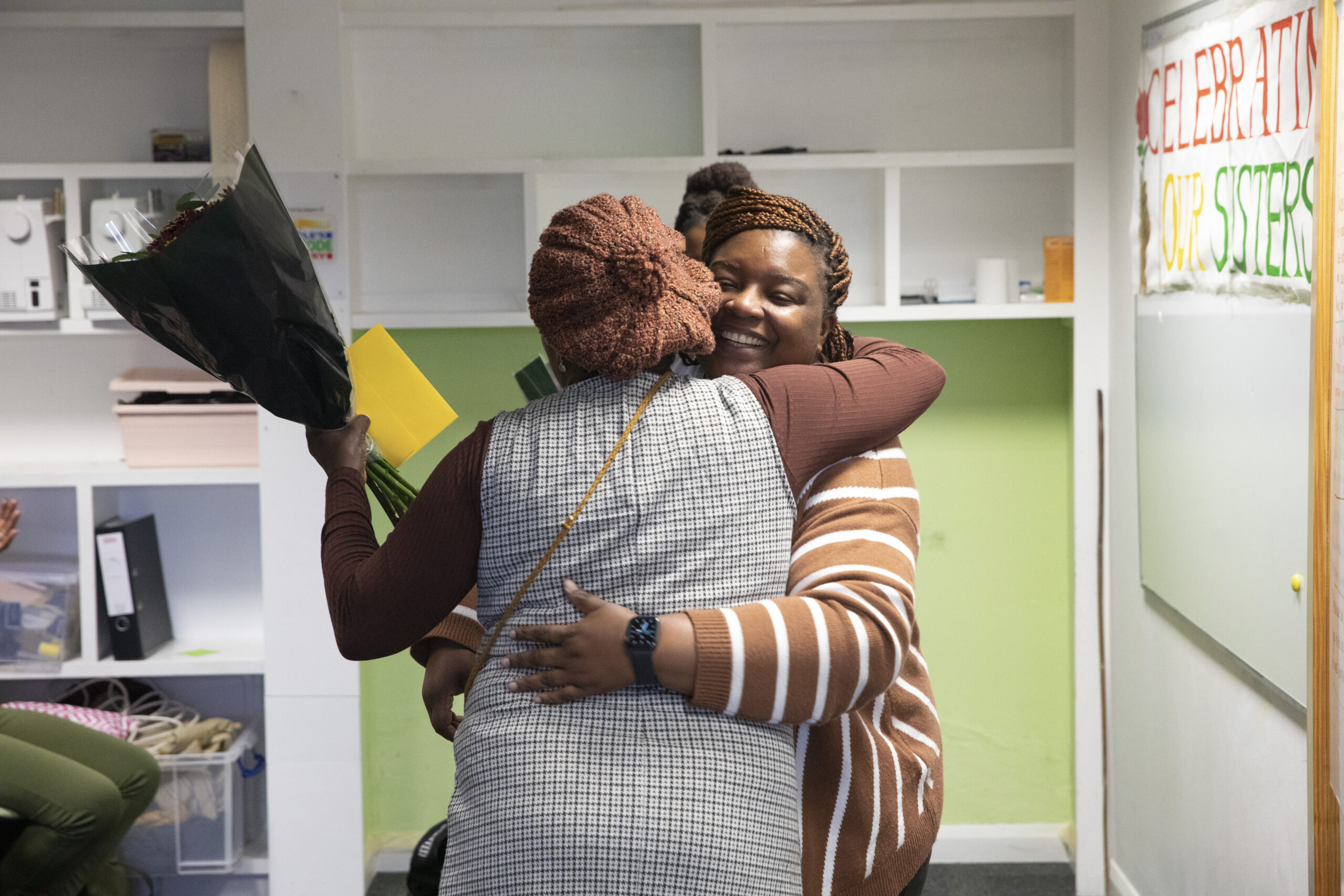In this blog, participants of the Hibiscus Initiatives ‘cultural mediation’ project outline the importance of cultural mediation for overcoming language and cultural barriers and empowering speakers of English as a second or additional language.
Key sections in this article:
Cultural mediation is a tool used widely in many European countries, like France, Germany, Italy, and Greece, but in the UK, it is not, as yet, an approach that is routinely used, or is all too often something which practitioners are not even aware of.
Hibiscus Initiatives, with funding from The Bell Foundation, have been leading a project focused on the use of cultural mediation to support Black, minoritised and migrant women who speak English as a second or additional language (ESL), particularly survivors of trafficking and gender-based violence.
As part of this project, we migrant women received training to enable us to use cultural mediation to support other individuals with similar experiences. In this blog, we provide our perspective on why this is such a valuable and important tool, and why it should be used more widely by both professionals and community volunteers across the UK.
What is cultural mediation?
Cultural mediation is an inclusive approach to help reduce cultural and language barriers experienced by migrants. It is a fundamental tool and empowering methodology that helps migrants like us navigate the systems we live in and heal, gain independence, and restore control over our lives.
This type of mediation aims to create a space where we can use our own words, languages, and ideas of the world to express what we are going through. In this context, the cultural mediator is asked to be much more than an interpreter, rather an expert in finding similarities and differences between languages and cultures. In general, a cultural mediator facilitates mutual understanding between a person or a group of people (e.g. the migrant population and a caregiver such as a doctor, police officer or social worker) by providing two-way verbal translation and understanding of cultural barriers.
“There is a lack of understanding of how powerful and useful cultural mediation is for us to access the right support and feel empowered.”
From our experiences as migrant women, many practitioners and professionals who meet us in their work are not aware of what cultural mediation is. This means the communication bridge between us gets broken easily and is not established from the start, considering our cultural and language needs. Consequently, we do not have access to the correct information to enable us to navigate the system and know what services are available, so we do not know where we are going. There is a lack of understanding of how powerful and useful cultural mediation is for us to access the right support and feel empowered.
For many of us, we had not truly understood what our options were, what support we could rightly request, or why we were in this situation. We began to make more conscious and informed decisions after Hibiscus supported us through cultural mediation, with workers who not only translated, but provided meaning and context to our situations in a way that we could understand.
Training to support others
Responding to this, Hibiscus has designed an in-house training for people with lived experience like us to learn and develop the skills, knowledge and practices required to perform the role of the cultural mediator. This is part of a further strategy to provide migrant women with the tools and platforms to regain power, advance in our professional goals and encourage our agency, communication, and leadership skills.
The training gave us the opportunity to discuss and understand what has happened to us and to learn how to support people who are going through similar situations. Some things were new and some we knew ourselves from our individual experiences. We learned through practical activities, interactive videos, and conversations with each other. We were all from different countries and cultures, spoke different languages, but have encountered similar obstacles and problems such as having issues with interpreters, delaying our cases because we did not receive the adequate support, and finding the UK system difficult and scary.
The most important part of the training was understanding how to build trust and communication with others, to be non-judgmental and empathetic, and make the others feel safe and comfortable. We now feel confident in providing support and giving the right directions and advice for people to build their own hope and strength.
“The training gave us the opportunity to discuss and understand what has happened to us and to learn how to support people who are going through similar situations.”
Looking to the future
Our objective is to become cultural mediators for other organisations in the third sector or in other essential areas such as healthcare or education. We would like to volunteer to help reduce the barriers that migrant women experience, to gradually advance in obtaining paid jobs and being considered professionals in this field. There are thousands of migrants arriving in the UK every year, many with quite diverse backgrounds, so it is key to have trained people with the right skills and knowledge of cultural mediation leading the services and projects aimed at them.
“We would like to volunteer to help reduce the barriers that migrant women experience, to gradually advance in obtaining paid jobs and being considered professionals in this field.”
Hibiscus has also designed tailored training for external organisations to advocate for cultural mediation and spread information and awareness of its importance when working with vulnerable migrants, such as survivors of trafficking or gender-based violence. This could be beneficial for practitioners, professionals, and the Government to increase their knowledge on this topic and provide the right level of support to migrants who speak other languages and come from other cultural backgrounds.






